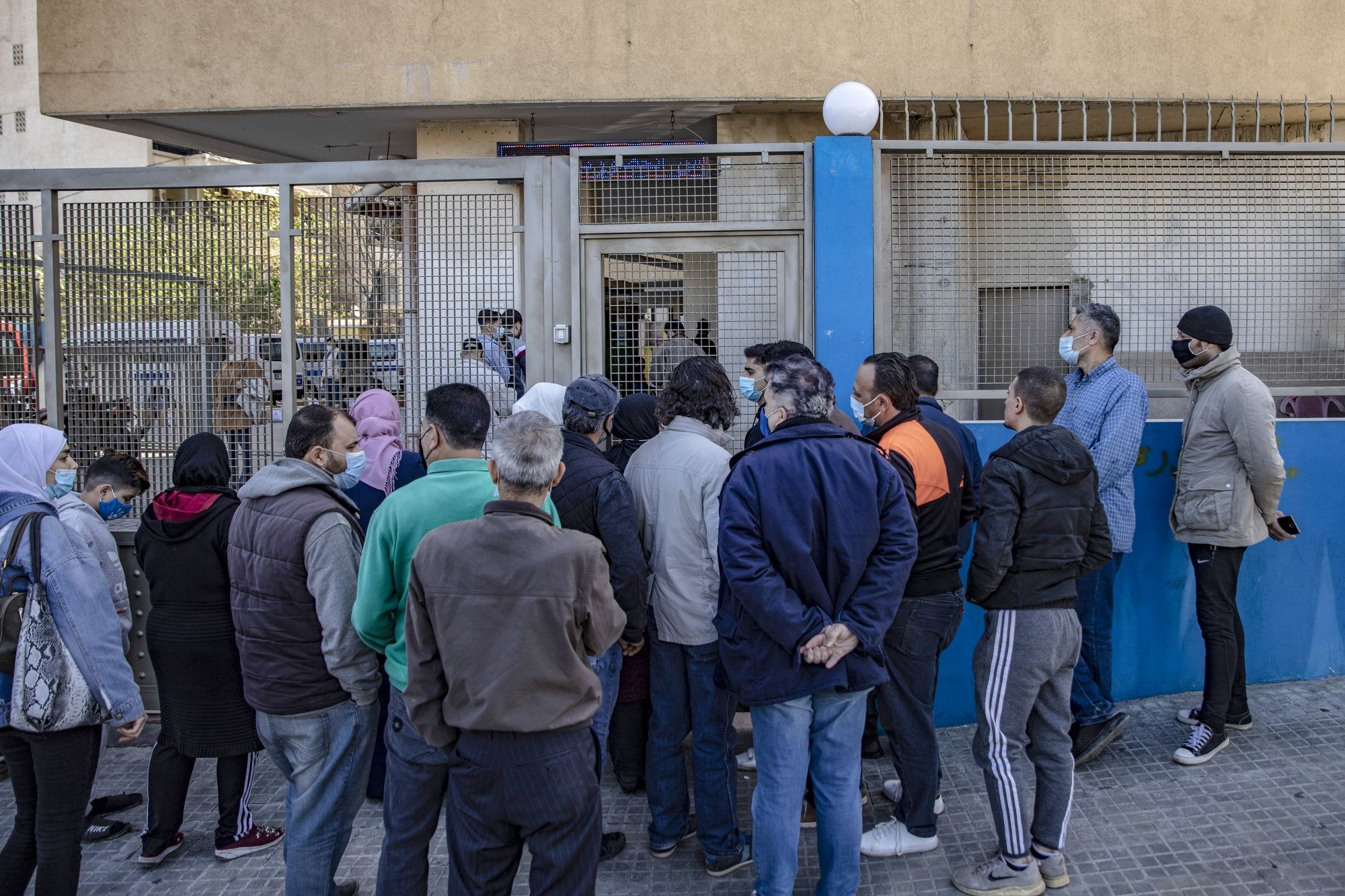 Photo via Bloomberg
Photo via Bloomberg
Published 01 May,2021 via Bloomberg Markets - This Ramadan, the pleas reaching the Lebanese Food Bank have taken on a new resonance.
Among the emails and calls it receives each day, an increasing number are coming from “educated people, people who used to be in the middle class,” according to executive director Soha Zaiter.
The changing demographic of those seeking help during the Islamic holy month is a study in how Lebanon’s free-falling economy is shifting the landscape for the country’s 6.8 million population. Where Muslims across the nation would once celebrate the breaking of the fast with an “iftar” meal with friends and relatives, preserving that tradition has become off-limits for many. So have the seasonal drinks and desserts.
The Lebanese pound has depreciated about 90% in the past 18 months, driving annual food inflation to 400%, erasing salaries and savings and pushing more than half the nation into poverty. And all this at a time when the country is battling the ravages of Covid-19 as well as the fallout from last year’s deadly port explosion.
Take Ahmed Abdallah, a call operator at the Lebanese Red Cross. With a paycheck just above the minimum wage, making ends meet is a struggle at the best of times. Now he’s fallen behind on his rent as he saves money for food. There’ll be no guests at his table this year.
“I can’t ask a friend or relative to join us because I can’t increase the amount of food, which is just enough for us and which we’ve calculated to the millimeter,” said Abdallah, who shares his two-bedroom apartment with his wife and four adult children, including two daughters with cerebral palsy.
It’s little wonder that the Lebanese Food Bank, a non-governmental organization, has seen a jump in people seeking help. It’s delivering 5,000 food boxes and 1,000 vouchers to needy families and teamed up with charities running seven kitchens to offer iftar meals through Ramadan, which this year lasts from April 12 to May 12.
“People have reached a certain level where they can’t sustain themselves and are asking for food to make sure their children aren’t going to bed hungry,” Zaiter said as she was inspecting meal-preparations at a kitchen in Beirut’s Tareek Al-Jdideh district.
The Lebanon Crisis Observatory at the American University of Beirut calculates the cost of a basic iftar for a family of five through Ramadan at 1.8 million pounds, equal to 2.6 times the minimum wage. And the cost is rising by the week. A kilogram of beef now costs roughly 65,000 pounds, almost 10% of the monthly minimum wage of 675,000 pounds. That’s $450 at the largely defunct official exchange rate, closer to $55 on the black market.
“Unfortunately, this is just the beginning,” said Nasser Yassin, associate professor of policy and planning at the AUB and head of the Observatory. “The worst hasn’t come yet in Lebanon in the absence of serious reforms.”
Political divisions have left Lebanon without a fully empowered government since August, when the prime minister resigned in the aftermath of the port explosion. The cabinet has stayed on in a caretaker capacity ever since. Meanwhile, party leaders trade blame on the airwaves but are loathe to endorse unpopular measures, such as subsidy cuts, to help stabilize public finances.
As an importer of most of its consumer goods, Lebanon subsidizes wheat, medicine and gasoline as well as a roster of everyday items. That has so far shielded consumers from the worst of the country’s economic troubles. Yet, a plan to gradually reduce subsidies while introducing cash transfers for the poorest still hasn’t been implemented, raising the risk of an abrupt price jump once the central bank’s dwindling dollar reserves run out.
All of which has made food handouts more than just a Ramadan phenomenon. The Matbakh El-Kell—Arabic for Everyone’s Kitchen—was initially set up as an emergency operation after the August port explosion. Working out of Beirut’s predominantly Christian neighborhood of Mar Mikhail, it’s now a permanent initiative, producing 2,500 meals a day all year round.
“What was an emergency kitchen unfortunately turned out to be a necessity in Lebanon given the terrible economical situation,” said Laura Meade, a retired food industry executive who oversees the project.
For more articles like this, please visit us at bloomberg.com
©2021 Bloomberg L.P. All Rights Reserved. Provided by SyndiGate Media Inc. (Syndigate.info)
DISCLAIMER: This content is provided to us “as is” and unedited by an external third party provider. We cannot attest to or guarantee the accuracy of information provided in this article from the external third party provider. We do not endorse any views or opinions included in this article.


Lin Noueihed